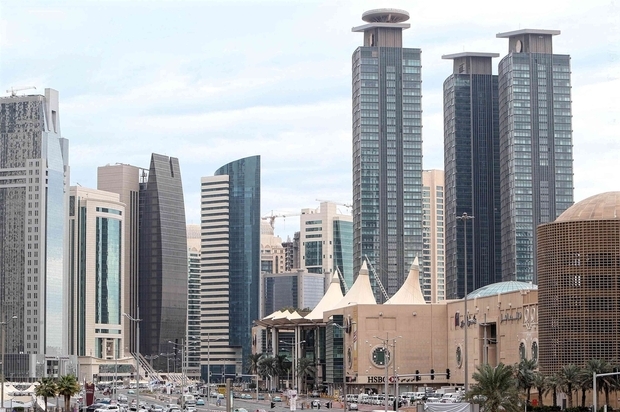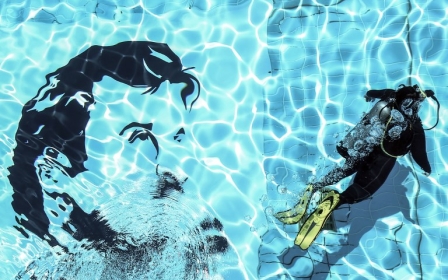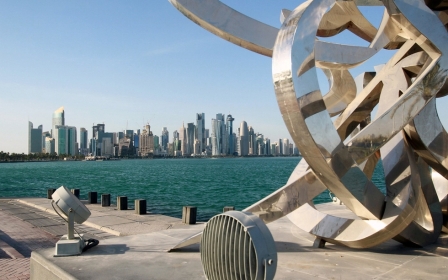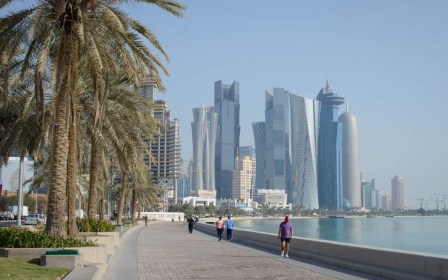Qatar takes UAE to court over 'racially discriminatory' boycott

Qatar took its dispute with the United Arab Emirates to the world’s highest court on Wednesday, accusing its Gulf Arab neighbour of human rights abuses and racially discriminating against Qataris through its yearlong blockade.
Doha asked the court to secure full reparation, including compensation, for the harm caused by the UAE.
The Emiratis had “fostered an environment of hate” and “implemented a series of discriminatory measures”, Qatar argued at the International Court of Justice (ICJ).
Qatar’s lawyer, Mohammed al-Khulaifi, told judges in the Hague that the blockade – which was implemented in June 2017 by the UAE, Saudi Arabia, Egypt and Bahrain – violates the International Convention on the Elimination of All Forms of Racial Discrimination (CERD).
The CERD, which has not been signed by Saudi Arabia, Egypt or Bahrain, includes discrimination based on nationality.
'The UAE’s course of action places Qataris on an unequal footing, violates their basic human rights and fundamental freedoms'
- Qatari court filing
“The UAE’s course of action places Qataris on an unequal footing, violates their basic human rights and fundamental freedoms, and is blatantly inconsistent with recognizing the ‘dignity and equality inherent in all human beings',” court documents filed by Qatar read, quoting the CERD.
In the court filing, Qatar said the UAE “has directly incited hate speech” and been responsible for “a full-scale media campaign against Qatar and Qataris”.
“UAE government officials themselves actually have participated in social media attacks on Qatari ‘sympathisers’ and have called for attacks against Qatar,” it added.
Bad neighbours
The blockade was launched by Riyadh, Abu Dhabi, Cairo and Manama in an attempt to force Doha into aligning its policies with their own.
Qatar in turn accused the quartet of violating the tiny, incredibly wealthy peninsula emirate’s sovereignty.
'UAE government officials themselves actually have participated in social media attacks on Qatari ‘sympathisers’ and have called for attacks against Qatar'
- Qatari court filing
The four countries accused Qatar of promoting terrorism, supporting Iran and threatening their national security – accusations Doha vehemently denies.
As part of the blockade, which severed diplomatic and travel ties, Qataris were expelled from the boycotting countries, which the United Nations and rights groups have said violates human rights.
"Historically the people of Qatar and its neighbours have been close. For decades Qataris and Emiratis have worked together, prayed together and married into each other's families," Khulaifi told a 16-judge bench at a tribunal on Wednesday.
Now, the lawyer argued: "The UAE has fostered such an environment of hate against Qatar and Qataris that individuals in the UAE are afraid even to speak to family members living in Qatar."
Countersuit
The UAE, which dismissed the Qatari claims as “lies”, is expected to respond on Thursday.
However, in a surprise move, the boycotting quartet announced they too would file a case at the ICJ over accusations of airspace violations, according to Saudi and Emirati media.
Qatar is accused of sending fighter jets to intercept passenger jets and a Bahraini helicopter. Doha denies the claims.
The court filings are the latest in a diplomatic standoff that shows no sign of abating.
Earlier this month, reports in Gulf Arab media claimed Saudi Arabia was going ahead with plans to dig a canal that would cut Qatar off from its only land border – effectively dislodging the emirate from the Arabian Peninsula.
New MEE newsletter: Jerusalem Dispatch
Sign up to get the latest insights and analysis on Israel-Palestine, alongside Turkey Unpacked and other MEE newsletters
Middle East Eye delivers independent and unrivalled coverage and analysis of the Middle East, North Africa and beyond. To learn more about republishing this content and the associated fees, please fill out this form. More about MEE can be found here.




